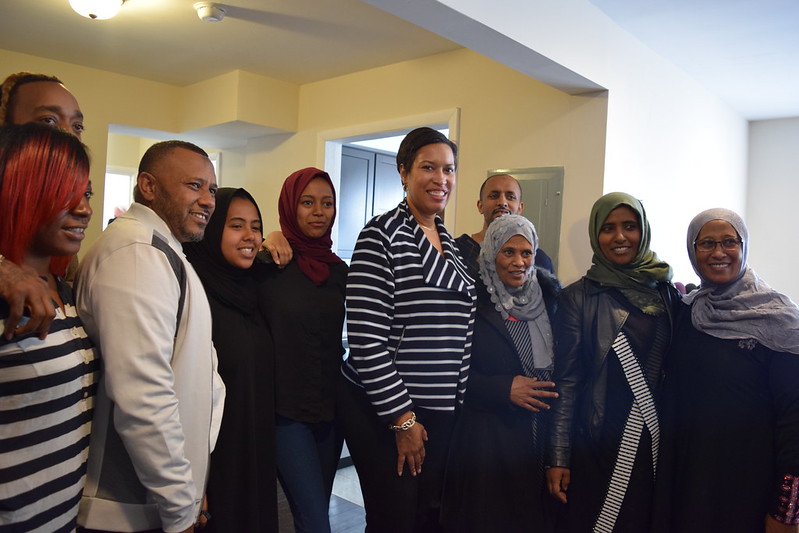The D.C. Department of Human Services’s fourth annual A Home for the Holidays campaign helped 218 families and 117 singles in the shelter system sign leases for permanent housing between Nov. 15 and Jan. 15. The initiative sought to identify 500 housing units in Washington, D.C., and convert them into long-term housing for people experiencing homelessness.
DHS worked in collaboration with the District of Columbia Housing Authority and other partners to engage with landlords to identify units and agree on discounted rent prices. While DHS did not achieve its goal of getting 500 leases signed, in a statement to Street Sense Media, they said they matched over 400 families and singles to housing and funding resources. This means that apart from 335 households that signed leases, more than 65 households were matched to units but had yet to sign leases within the campaign period. DHS states that due to their COVID-19 safety protocols, their ability to show residents their future units to complete the leasing process were “slowed, in some cases.”
DHS says they focused their campaign on housing people living in the Pandemic Emergency Program for Medically Vulnerable Individuals (PEP-V), three hotels used to provide non-congregate shelter options. PEP-V participants are mostly prior residents of temporary shelters who are above the age of 55 or otherwise highly vulnerable to contracting COVID-19.
Street Sense Media reported earlier this month that PEP-V was reaching full capacity. There is no time limit on the program. Residents remain at the hotels until they are matched to permanent housing or they choose to leave. But with limited housing options, the program was 91% full as of Jan. 22 and Permanent Supportive Housing units have been at or near 90% full throughout hypothermia season.
[Read More: PEP-V hovers around full capacity without enough housing options for vulnerable people]
“The pandemic underscores the reality that housing is essential for health and well-being,” said Laura Zeilinger, director of DHS. She notes that the transition to housing can take longer as people and families experiencing homelessness often lack in documentation like birth certificates. “But we are thrilled to see that many individuals, some of whom had been homeless for decades are now or will shortly be back home.”
The campaign was first launched in 2017, and according to the Mayor’s office, has since moved an additional 1000 households into permanent housing.








